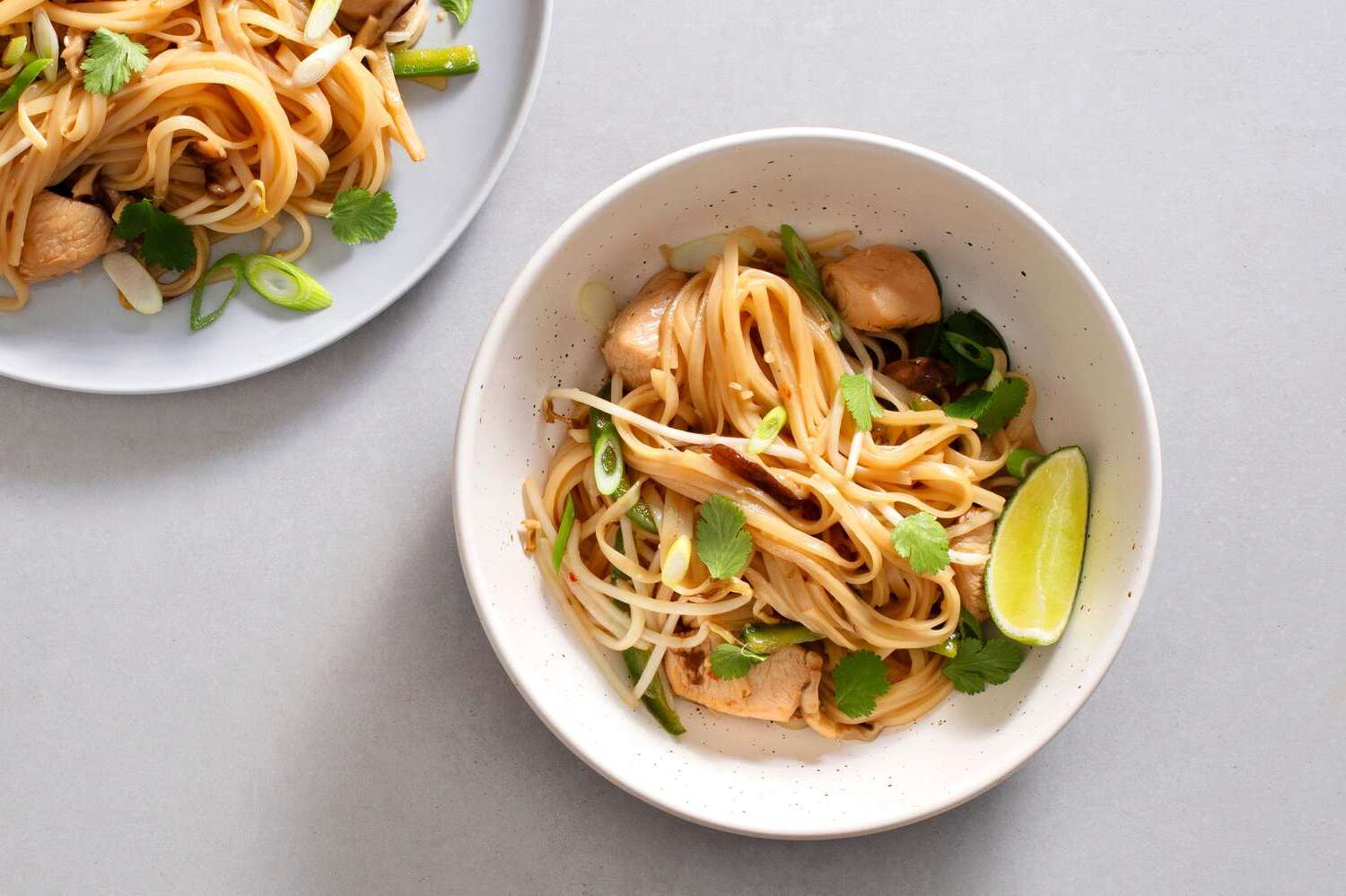
Ever wondered what makes rice noodles a staple in so many kitchens around the globe? Well, you're about to find out! Rice noodles aren't just a delicious alternative to traditional pasta; they're packed with health benefits that might surprise you. From being a fantastic option for those with gluten sensitivities to their versatility in various dishes, these slender strands of goodness have more to offer than meets the eye. Rice noodles are low in calories, making them a perfect choice for anyone looking to maintain or lose weight. Plus, they're a great source of energy, thanks to their high carbohydrate content. So, why not give your meals a nutritious twist with rice noodles? Let's dive into the 15 health facts that make rice noodles a must-try for anyone aiming to eat healthier.
Key Takeaways:
- Rice noodles are a low-calorie, gluten-free option that's easy on the stomach and provides quick energy. They're versatile and perfect for stir-fries, soups, and salads, but remember to pair them with nutrient-dense foods.
- When cooking rice noodles, remember to soak them before cooking and avoid overcooking to achieve the perfect texture. They're a great addition to stir-fries, soups, and salads, offering a delicious foundation for a variety of dishes.
What Are Rice Noodles?
Rice noodles, a staple in Asian cuisine, offer a versatile and gluten-free alternative to wheat-based noodles. Made primarily from rice flour and water, sometimes with added tapioca or corn starch for texture, they come in various shapes and sizes. This variety makes them perfect for everything from soups and stir-fries to salads and spring rolls.
Nutritional Profile of Rice Noodles
- Low in Calories: Compared to traditional pasta, rice noodles contain fewer calories, making them a preferred choice for those monitoring their calorie intake.
- Gluten-Free: For individuals with celiac disease or gluten sensitivity, rice noodles are an excellent alternative, ensuring they can enjoy their favorite dishes without worry.
- Minimal Fat Content: With virtually no fat, rice noodles are a heart-healthy option that can easily fit into a balanced diet.
Health Benefits of Rice Noodles
- Digestive Health: Being easily digestible, rice noodles are kind on the stomach and can be a good option for people with digestive issues.
- Energy Source: They provide a quick source of carbohydrate energy, which can be particularly beneficial for athletes or those needing a fast energy boost.
Comparing Rice Noodles to Other Noodles
- Lower Glycemic Index: Rice noodles have a lower glycemic index than many other types of pasta, meaning they cause a slower rise in blood sugar levels, beneficial for blood sugar management.
- Versatility in Diets: Their gluten-free nature makes rice noodles suitable for a wide range of dietary restrictions, including those with gluten intolerance and individuals following a vegan diet.
Cooking Tips for Rice Noodles
- Soaking Is Key: Unlike wheat noodles, rice noodles usually need to be soaked in water before cooking. This step is crucial for achieving the perfect texture.
- Avoid Overcooking: Rice noodles can become mushy if overcooked. It's best to cook them briefly in boiling water or even just soak them in hot water until they're soft enough to eat.
Creative Ways to Include Rice Noodles in Your Diet
- Stir-Fries: Toss them with your favorite vegetables and protein for a quick and nutritious meal.
- Soups: Add them to broths to create filling and comforting dishes.
- Salads: Cool, soaked rice noodles can add substance and texture to Asian-inspired salads.
Potential Downsides
-
Low in Fiber: Unlike whole grain noodles, rice noodles are low in dietary fiber, which is essential for healthy digestion.
-
Nutrient Content: They are not a significant source of vitamins or minerals, so it's important to pair them with nutrient-dense foods.
-
Blood Sugar Levels: For those with diabetes or insulin resistance, consuming rice noodles in moderation is key due to their carbohydrate content and potential impact on blood sugar levels.
Rice noodles offer a versatile and inclusive option for many, fitting into various dietary preferences and needs. Whether incorporated into a savory soup, a vibrant salad, or a hearty stir-fry, they provide a delicious foundation for a multitude of dishes. Remembering their nutritional profile and potential downsides can help you make informed choices about including rice noodles in your meals.
A Final Noodle Note
Rice noodles, a staple in many diets around the globe, offer more than just a delicious base for your favorite dishes. They're a gluten-free alternative that can fit into various dietary needs, making meals accessible and enjoyable for everyone. With their low fat content and potential benefits for digestion and energy levels, they're a smart choice for those looking to maintain a balanced diet. Remember, though, moderation is key, as with all foods. Pairing rice noodles with a variety of vegetables and lean proteins can create nutritious, balanced meals that fuel your body right. So next time you're pondering what to whip up for dinner, consider the humble rice noodle. It's versatile, it's tasty, and it might just be the perfect addition to your meal plan.
Frequently Asked Questions
Was this page helpful?
Our commitment to delivering trustworthy and engaging content is at the heart of what we do. Each fact on our site is contributed by real users like you, bringing a wealth of diverse insights and information. To ensure the highest standards of accuracy and reliability, our dedicated editors meticulously review each submission. This process guarantees that the facts we share are not only fascinating but also credible. Trust in our commitment to quality and authenticity as you explore and learn with us.


